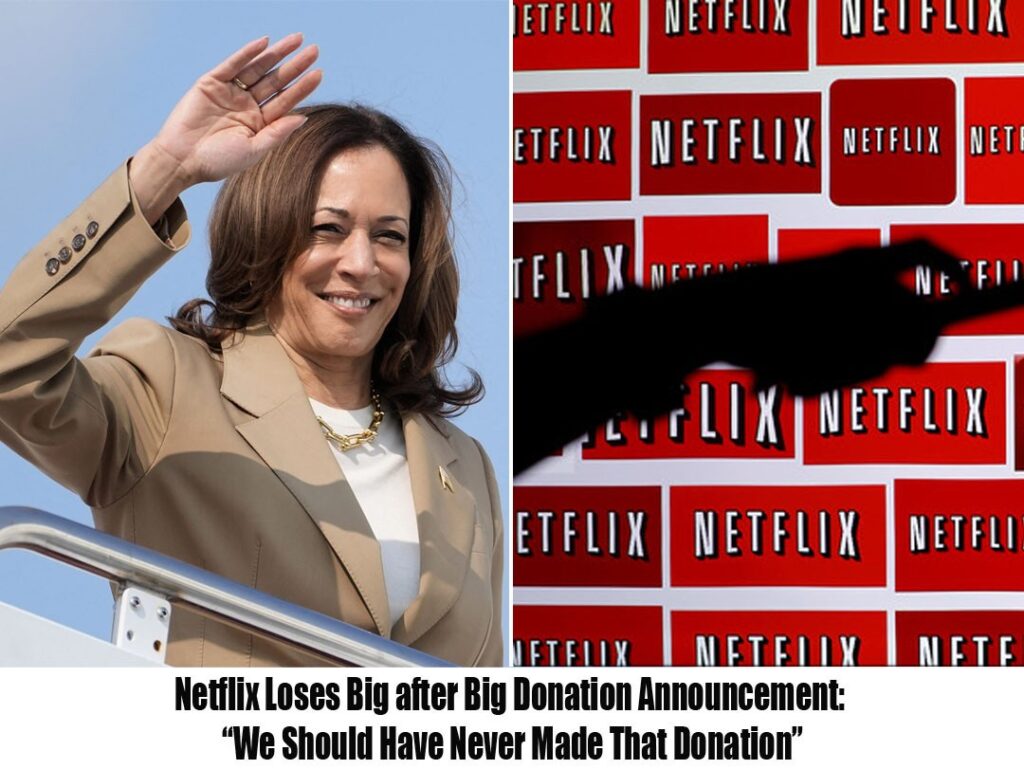
Netflix, the streaming giant known for its original content and massive subscriber base, recently found itself at the center of a controversy that has had significant financial repercussions. The company announced a substantial donation to a contentious cause, which has sparked a backlash from both investors and subscribers. The fallout has led many to question the wisdom of the decision, with some insiders labeling it a “huge mistake.”
The Donation Announcement
In an unexpected move, Netflix pledged a large sum to a cause aimed at addressing social justice issues. While the specific details of the donation were initially kept under wraps, the announcement was meant to align Netflix with a growing movement of corporate social responsibility. The company hoped to position itself as a leader in supporting progressive causes, reflecting its diverse and inclusive brand ethos.
Immediate Backlash
![]()
Despite the positive intentions behind the donation, the response was swift and largely negative. Critics argued that Netflix had overstepped its bounds by involving itself in a polarizing issue, alienating a significant portion of its audience. Social media platforms were flooded with calls for boycotts, and the hashtag #CancelNetflix began trending almost immediately after the announcement.
Investors were equally unsettled. The company’s stock price took a notable hit as shareholders reacted to the news, fearing long-term damage to Netflix’s brand and profitability. Analysts pointed out that the move might have been too bold, too fast, and not in line with the preferences of a diverse subscriber base.
Internal Discontent
The controversy extended beyond the public and investor backlash. Reports indicate that there was significant internal disagreement about the donation within Netflix’s executive team. Some executives reportedly warned against making such a large and public commitment without fully understanding the potential repercussions. However, the decision ultimately went ahead, leading to what many are now calling a strategic blunder.
Financial Consequences

The financial impact of the announcement has been severe. Netflix’s stock plummeted, wiping out billions in market value. Subscriber growth, already a concern in a saturated market, appeared to stall, with some users canceling their subscriptions in protest. The company’s earnings report for the quarter reflected these challenges, with a noticeable dip in revenue and profit margins.
Lessons Learned
The fallout from Netflix’s donation announcement serves as a cautionary tale for other corporations. In an era where companies are increasingly expected to take stances on social issues, the risks of misjudging public sentiment are high. Netflix’s experience underscores the importance of thorough market research and internal consensus before making public commitments to controversial causes.
For Netflix, the road to recovery involves rebuilding trust with its audience and investors. The company has already begun rolling out initiatives to win back subscribers, including new content releases and promotional offers. Additionally, Netflix has hinted at a more cautious approach to future social responsibility efforts, aiming to strike a balance between supporting important causes and maintaining its broad appeal.
Conclusion
Netflix’s ambitious donation announcement, intended to solidify its reputation as a socially responsible company, backfired spectacularly. The ensuing backlash from subscribers and investors alike has left the company reeling, with significant financial losses and internal strife. As Netflix navigates the fallout, its experience serves as a stark reminder of the complexities involved in corporate social activism and the need for careful consideration before making high-stakes decisions.
In the ever-evolving landscape of corporate responsibility, Netflix’s “huge mistake” may ultimately lead to a more measured and strategic approach by other companies, ensuring that their efforts to make a positive impact do not inadvertently harm their business.

